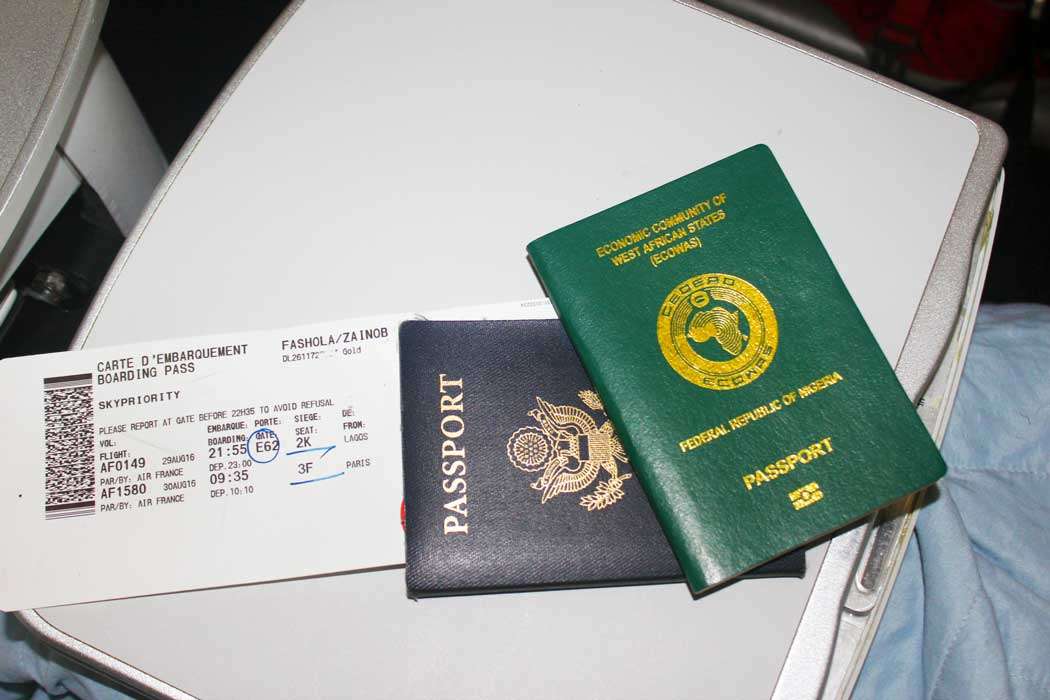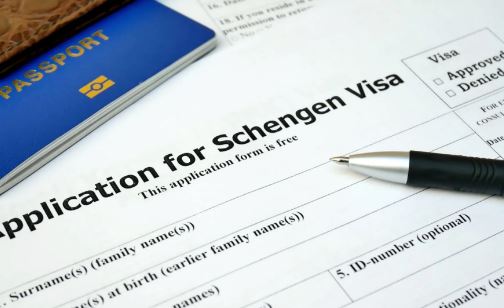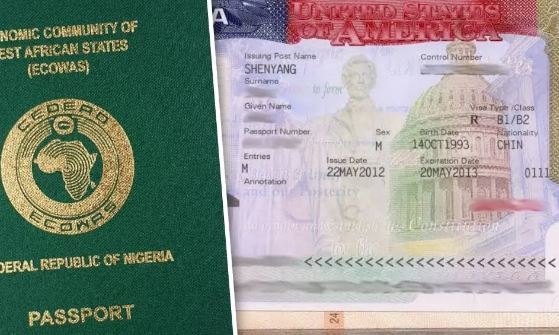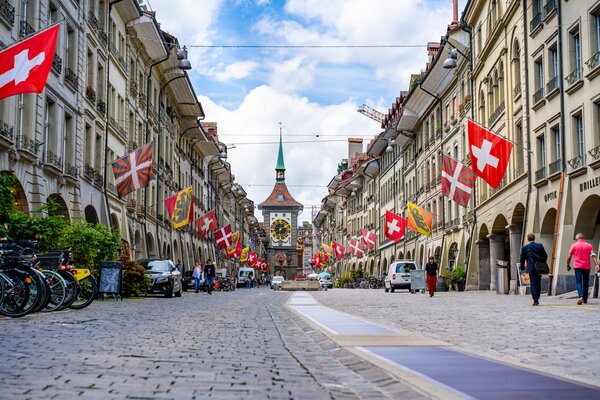One country in Schengen Area that is worth visiting is Switzerland. It is an excellent country with scenic nature comprising highlands and lowlands, water bodies, Alps and glaciers. Because of the high-quality life, education, healthcare, and work opportunities, many Nigerians choose Switzerland as their immigration location.
Learn more on how to apply to immigrate to Switzerland from Nigeria, visa appointment, processing time, and other relevant information to enable you to immigrate to this beautiful country.
Table of Contents
- 1 How Much Does a Switzerland Visa for Nigeria Cost?
- 2 What is Switzerland Immigration for EU/EFTA Citizens?
- 3 Switzerland Immigration for Nigerian Citizens
- 4 What Documents do I need for the Swiss Visa Application?
- 5 How do I Immigrate to Switzerland from Nigeria?
- 6 What do I gain as a Swiss Permanent Resident or Citizen?
How Much Does a Switzerland Visa for Nigeria Cost?
The cost of a Switzerland visa application in Nigeria is as follows:
| Visa Category | Visa Amount in Nigerian naira* |
| Nigerian Adults | 40,779.64 NGN |
| Children between 6-12 years of age | 20,389.82 NGN |
| Children younger than six years of age | Free |
Note that the above price is subject to change based on the current exchange rate.
What is Switzerland Immigration for EU/EFTA Citizens?
Although Switzerland is not part of the European Union, it does enjoy the benefits the EU countries enjoy because it participates in the EFTA (European Free Trade Association). The EFTA countries include Switzerland, Norway, Iceland, and Liechtenstein. Being joined with the EU countries offers them free movement and a free market among the member countries based on the agreement.
Thus, this freedom of movement allows EU/EFTA citizens to enter freely to Switzerland and enjoy the same benefits in the area of work, residence, and treatment. Even though they don’t need a visa, they must apply for a Swiss residence permit if their stay exceeds three months.
Aside from that, Switzerland is part of the Schengen Area, consisting of 27 countries that have built visa and border control-free among them. Citizens of Schengen countries can also enter freely into Switzerland without visas. But, they must apply for a resident permit to stay beyond three months. Newer EU member countries like Romania and Bulgaria may have some restrictions.
Switzerland Immigration for Nigerian Citizens
Yearly, the number of immigrants moving to Switzerland increases. As such, the country has put measures in place to curb the intake of excessive people. That results in the imposition of the annual maximum number of residence and work permits to grant to non-EU/EFTA citizens, including Nigerians.
As you plan to immigrate to Switzerland from Nigeria, you will likely apply for a Swiss long-stay visa to enter the country. After immigrating to Switzerland, you can apply for a Swiss residence permit.
What Documents do I need for the Swiss Visa Application?
To apply to immigrate to Switzerland from Nigeria, you need to provide some valid documents. They include:
A valid passport: The passport must be valid for up to six months from the planned arrival date. It must also have at least two blank pages and be at most ten years old.
Valid photo: You must provide at least two passport-sized photographs
Medical insurance: You must have medical travel insurance covering at least 30,000 pounds for any medical expenses you may incur.
Cover letter: A cover letter explains your purpose of immigrating to Switzerland from Nigeria.
Round-trip ticket: This is a copy of the flight reservation ticket as proof of your intention to return to Nigeria.
Proof of funds: Your statement of account for up to three months must show that you have the financial capacity to live in Switzerland.
Previous visas: If you have previous Swiss or Schengen visas, add them to your documents for review.
How do I Immigrate to Switzerland from Nigeria?
To immigrate to Switzerland from Nigeria, you need to fulfill the following two requirements: Apply for a Swiss long-stay visa and obtain the appropriate resident permit.
How do I Apply for a Swiss Long Stay Visa?
People mainly move to Switzerland to work, study, or reunite with their families. Whichever reason you are doing so, you must get the proper visa. Besides, each visa has its requirements, restrictions, and conditions.
Work Visa: Nigerians who want to work in Switzerland can apply for this visa. Before applying, you must have a work contract with a Swiss employer.
Transit Visa: If you are moving to another country and need a connecting flight to Switzerland, you can apply for this visa. It is only valid for 72 hours, allowing you to rest before continuing your journey.
Student Visa: If you want to study in Switzerland as a Nigerian, you will need this visa. But before applying for it, ensure you have gained admission into a Swiss college or university.
Family Reunion Visa: If you want to be joined back to your family member, say spouse, who is a permanent resident or citizen in Switzerland, you must obtain a family reunion visa.
Retirement Visa: This is issued to a Nigerian who wants to retire to Switzerland after active years in Nigeria. However, if you are in this category, you must have enough funds to support yourself.
How do I Obtain a Swiss Residence Permit?
After getting your Swiss long-stay visa, the next step is obtaining your resident permit. You can apply for the permit at the cantonal immigration office of the canton you are immigrating to. Switzerland has 26 cantons in charge of issuing residence permits and work authorization to those who immigrate to the country for work purposes.
You have up to 14 days from the day you immigrated to Switzerland to apply for your residence permit. Usually, those who want to immigrate to Switzerland from Nigeria can apply for any of the following residence permits:
Permit L: This is issued to those who want to stay in Switzerland for a short term. It is valid for up to a year and can be renewed for up to 24 months. Nigerian immigrants to Switzerland who want to work for a specific period can apply for Permit L. It may be impossible if you wish to change your job after obtaining the L permit.
Permit B: This is for temporary or initial residence in Switzerland. It is issued for up to five years to EU/EFTA nationals and only one year for non-EU/EFTA nationals. However, the B permit is subject to renewal.
Permit C: After living in Switzerland for up to ten years with Permit B, you can apply for a Swiss Permanent Resident Permit, otherwise called Permit C. The required period to get a residence permit in Switzerland is 12 years.
Swiss Citizenship: After living in Switzerland for ten years and having obtained your Swiss Permanent Resident Permit, you can apply to become naturalized as a citizen. In particular cases, you can apply for your permanent residency or citizenship earlier, such as being the spouse of a Swiss national or a second-generation child resident.
What do I gain as a Swiss Permanent Resident or Citizen?
Both Swiss permanent residence and citizenship offer nearly the same benefits. For instance, you can work anywhere and for whomever you choose without restriction. You can also access social assistance and welfare benefits or buy property without restrictions.
However, you can only vote and be voted for as a citizen. Permanent residents do not have this exclusivity. This also comes with some obligations. For instance, only citizens can do military service for men between 18 and 34.
To obtain your Swiss visa from Nigeria, submit your application to their embassy in Abuja.
Read Next: How to Immigrate to the Netherlands from Nigeria









